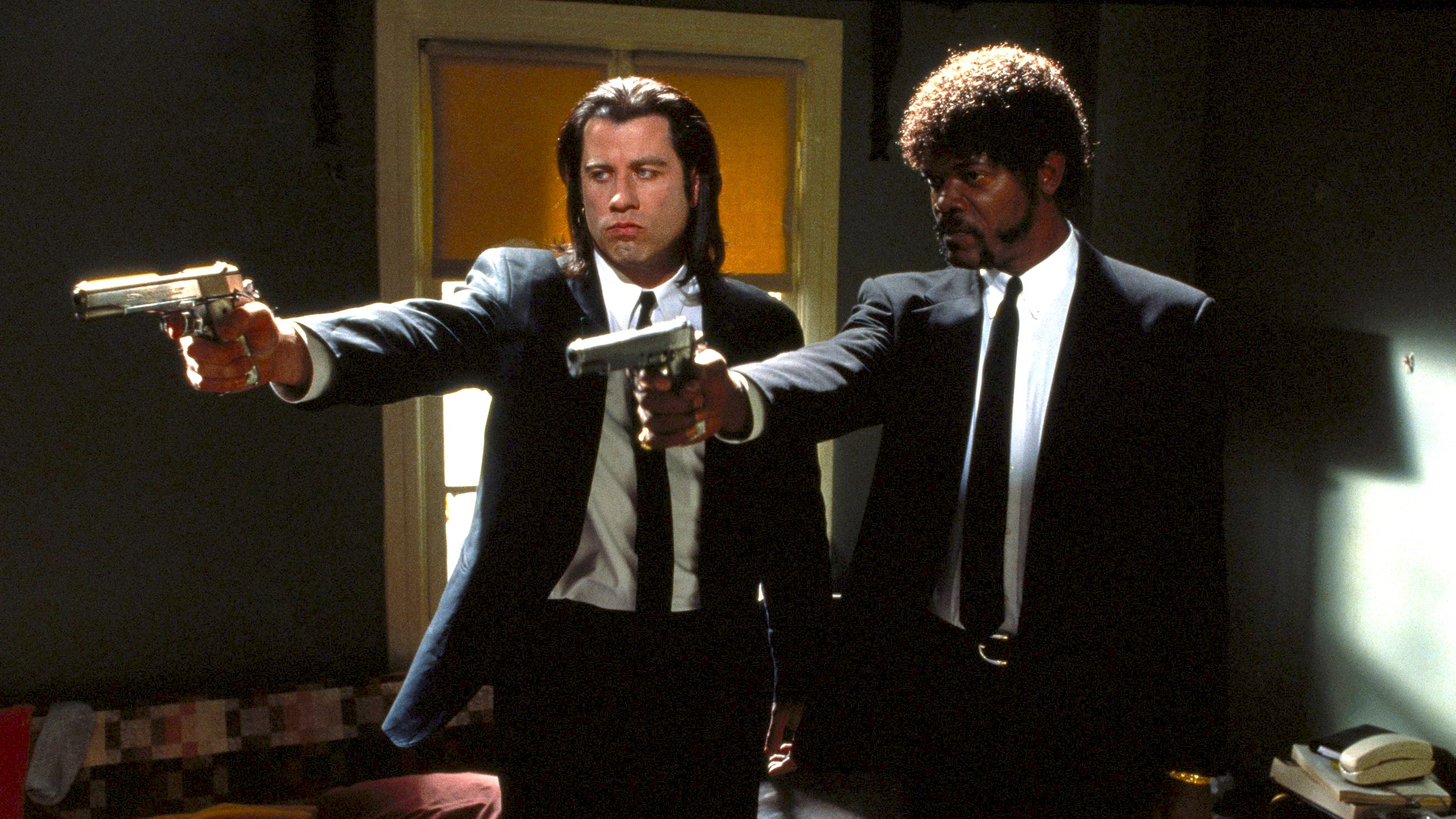Watch Pulp Fiction (1994) Movie

A burger-loving hit man, his philosophical partner, a drug-addled gangster's moll and a washed-up boxer converge in this sprawling, comedic crime caper. Their adventures unfurl in three stories that ingeniously trip back and forth in time.

You won't know the facts until you've seen the fiction. - drug dealer
## The Dancing Paradox: Pulp Fiction's Circularity and the Illusion of Choice
Quentin Tarantino's *Pulp Fiction* isn't just a cool film; it's a cinematic Rubik's Cube. Its fragmented narrative, iconic characters, and quotable dialogue have been dissected and celebrated for decades. But beyond the surface allure, *Pulp Fiction* offers a deeper exploration of free will, consequence, and the cyclical nature of violence, a theme subtly underscored by the film's non-linear structure. This isn't just a cool trick; it's integral to the film's core.
We enter the world of Jules and Vincent – philosophers with firearms – in the middle of their routine work for Marsellus Wallace. The initial scene, discussing the minutiae of European fast food, establishes a sense of normalcy, a grounding that is violently shattered moments later. They retrieve the mysterious briefcase, leaving a trail of bullet-ridden corpses in their wake. This encounter, seemingly random, sets the stage for the recurring theme of divine intervention and the illusion of control. Jules, after experiencing the near-miraculous survival in the apartment, believes he's witnessed God. This revelation directly influences his later decision to renounce his life of crime.
But here's where the film's cyclical nature becomes crucial. Jules' "epiphany" isn't a singular event. Instead, it's presented within the broader, non-linear tapestry of the film. We see him wrestling with its meaning before and after the "Bonnie Situation," forcing us to question the authenticity and permanence of his transformation. Is Jules truly changed, or is he simply experiencing a temporary lapse in his violent nature, a fleeting moment of clarity within a predetermined cycle?
Consider Mia Wallace. Her accidental overdose is arguably the film's most jarring and frantic sequence. Vincent, in a desperate attempt to save her, plunges an adrenaline shot into her heart. She survives, but the event serves as a catalyst for the film's most awkward and unsettling scene: the diner dance contest. This frivolous, almost surreal interlude seems completely disconnected from the life-or-death stakes of the overdose. Yet, it’s precisely this juxtaposition that highlights the film's central paradox. We're constantly pulled between moments of brutal violence and absurd levity, mirroring the chaotic and unpredictable nature of life itself.
The famous "Gold Watch" storyline, involving Butch Coolidge, the boxer, further reinforces this theme. Butch's decision to return for his father's watch is a moment of defiance against Marsellus Wallace, a direct challenge to power. This act of rebellion leads him into the bowels of Maynard's pawn shop, a horrific scenario where he must choose between saving himself and rescuing Marsellus from torture. Butch's seemingly heroic act of saving his oppressor ironically brings him back into the fold, albeit temporarily. He escapes with his life and the watch, but the cycle of violence persists.
The briefcase, the constant MacGuffin that drives much of the plot, is another significant element. We never definitively learn what's inside, leaving its true significance open to interpretation. Is it Marsellus' soul? A symbol of ultimate power? Or is it simply a distraction, a red herring designed to keep us focused on the surface while the film explores more profound themes?
Ultimately, *Pulp Fiction* doesn’t offer easy answers. It presents us with a world where choices are often arbitrary, consequences are unpredictable, and redemption is a constant struggle. The fragmented narrative mirrors this ambiguity, suggesting that even in a carefully constructed story, the illusion of control can be just that – an illusion. The dancing, the burgers, the bullets, the bible verses – they all contribute to a grand, cyclical dance of life and death, leaving us to question whether any of the characters, or even ourselves, truly have the power to break free from the predetermined rhythm. The film's genius lies not just in its style, but in its enduring ability to challenge our perceptions of choice and consequence, forcing us to confront the uncomfortable reality that we may all be dancing to someone else's tune.

إرسال تعليق